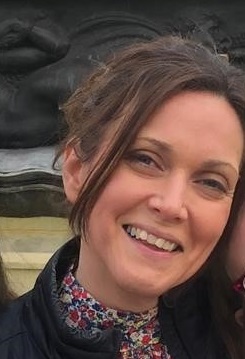Reducing our waste and managing it better is a vital part of our efforts to tackle climate change and achieve our net zero ambitions.
Ruth Innes (Sustainability Manager – Waste and Resource Efficiency) has honed a wealth of expertise on best practice in waste management throughout her career – starting out in waste management at NHS Highland before moving to the NHSScotland Assure team within NHS National Services Scotland (NSS) as national lead on waste and resource efficiency.
In Ruth’s role, she regularly provides health boards across NHSScotland with support, guidance and practical training.
And that’s exactly why NSS Dental Director Paul Cushley got in touch…
Drilling down on dental waste
As Paul explains: “Dental services generate a variety of complex clinical waste, across NHSScotland. Sorting our waste correctly is one of the single biggest contributions we can make towards our shared sustainability goals.
“I reached out to Ruth for her help to engage dental staff on how to sort waste correctly – and, crucially, why it’s so important.
“Ruth rose to the challenge and spoke at a training event with over 700 participants from the dental community.
“As well as covering how to improve waste segregation, Ruth’s training looked at the why – as well as our regulatory responsibilities as a dental profession, we can make a real difference in both environmental and financial terms if we sort our waste correctly.
“The more we can sort waste, the more can be recycled correctly and can become part of the circular economy.
“I thought Ruth’s training was invaluable – we all need to play our part in reaching our shared sustainability goals and the knowledge we’ve gained will allow us to do exactly that.”
Closing the loop: the benefits of embracing the circular economy

As part of her role, Ruth engages with staff across the country to emphasise which materials can be recycled and which items should be segregated as clinical waste. This also covers the importance of compliance and waste management legislation.
She runs training events for NHSScotland staff across the country including staff nurses, domestic staff, doctors, theatre nurses, infection control nurses, and porters.
As Ruth explains, “Did you know that it’s estimated that only 33 percent of waste in an orange clinical waste bag is actually clinical waste? The rest is either domestic or recyclable waste.
“So I’m keen to get staff engaged in this – sorting waste makes such a huge difference! People understand this more and more in their home lives so we really want to show how important it is at work too.”
Ruth continues: ““We’re losing a lot of value from our recycling materials.
“It’s costing us roughly three times more when items that can be recycled are incorrectly put into clinical waste rather than recycling.
“We should be working towards a circular economy, which is more about changing our relationship with products and materials – leaving products within the economy as long as possible and recycling the waste to use in new products. And this means starting to view our waste as a resource, a commodity.
“The circular economy is going to be increasingly important and along with Wendy Rayner (Head of NHS Circular Economy Programme, Scottish Government) who leads on this programme and the team in National Procurement we’re already looking at how materials like plastic and cardboard can be real commodities for us.
“I know lots of people think everything just gets incinerated because we’re the NHS, but I’m working with waste management colleagues and others across the country to try to change that perception.”
Playing our part
NHSScotland is one of the largest employers in Scotland, and we make up about 5% of Scotland’s overall carbon footprint.
As Ruth explains: “This means we can make a huge difference if we all play our part in shifting our thinking and practice to a more sustainable, circular economy and avoiding waste where we can.”
“I’m very thankful for everybody that is interested in trying to make a difference.”